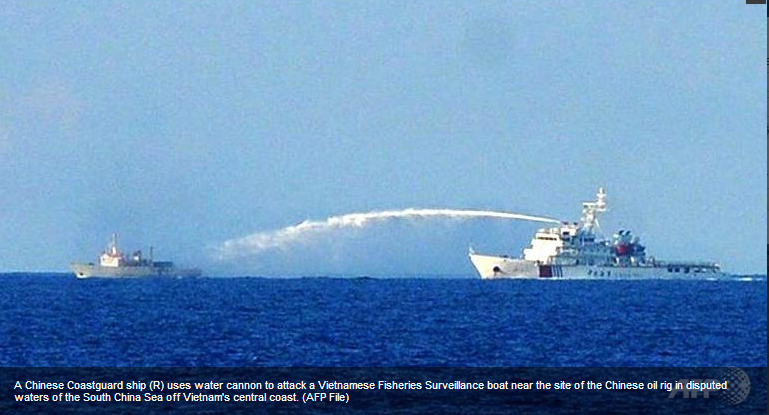MANILA – At a regional meeting
on Friday, the Philippine said that they
would have a table “triple action plan” to calm tensions and resolve rows
between China and other Asian claimants to the South China Sea.
In recent months, pressures
between the claimants have intensified as China claims most of the sea, even
waters close to the coasts of its neighbors. In May, China’s deployment of
deep-sea oil in the South China Sea, which is also claimed by the Vietnam led
to clashes between the two countries.
"These tensions have
strained relations among countries, increased levels of mistrust, and
heightened the dangers of unintended conflict in the region," said a
Philippine foreign department statement outlining the plan.
Next week, Philippines will be
attending a ministerial meeting with the
other members of the Association of Southeast Asian Nations (ASEAN) and Philippines
is set to table a "triple action plan" containing direct,
intermediate, and final approaches to address the undermining activities that is happening in South China
Sea. China's maritime claims overlap those of Taiwan, Brunei, Malaysia, the
Philippines and Vietnam.
The Philippines has requested the a United Nations tribunal to pronounce China's claims as against international law. Moreover, Manila would also ask for the full proposal of a 2002 ASEAN-China Declaration of Conduct in the disputed area, as well as for a settlement tool attached in international law to resolve the rows.
The Philippines has requested the a United Nations tribunal to pronounce China's claims as against international law. Moreover, Manila would also ask for the full proposal of a 2002 ASEAN-China Declaration of Conduct in the disputed area, as well as for a settlement tool attached in international law to resolve the rows.
The
Myanmar meetings will also contain talks between the ASEAN foreign ministers
and counterparts from the bloc's main regional trading partners such as China,
Japan and South Korea.There will also be a regional security discussion
involving 27 countries, including the ASEAN members, China, Japan, South Korea,
the United States, Russia, and Australia.

















